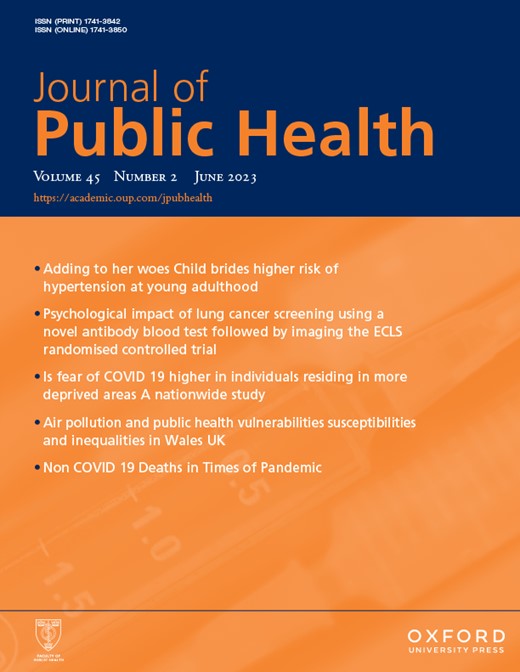-
Views
-
Cite
Cite
Pravesh Sharma, Quang Anh Nguyen, Shaheen Kurani, Ashley Holland, Hilal Maradit Kremers, Vanessa Pazdernik, Jennifer St. Sauver, Paul Croarkin, Celia Kamath, Jennifer Geske, Kavita Prasad, Amy Glasgow, Lindsey Sangaralingham, Christi Patten, Association of socio-demographic characteristics with alcohol use initiation among never users during the COVID-19 pandemic: a longitudinal study, Journal of Public Health, Volume 45, Issue 2, June 2023, Pages 442–449, https://doi.org/10.1093/pubmed/fdac099
Close - Share Icon Share
Abstract
In this longitudinal cohort study, we examined the socio-demographic and psychological predictors of alcohol use initiation during the COVID-19 pandemic in a sample of never alcohol users aged ≥21 prior to COVID-19.
Our study population consisted of 56 930 patients aged ≥21, as of 30 March 2019 were collected from a pre-COVID period of 1 year before 31 March 2020, and during-COVID, a period between 1 April 2020 and 30 March 2021. Univariable and multivariable logistic regression models were utilized to examine the roles of socio-demographic variables (gender, age, education, Area Deprivation Index and rural residence) changes in anxiety and depression severity as predictors of alcohol use initiation.
Age, gender, race, ethnicity, education and rural status were significant predictors in multivariable analysis. A subgroup analysis showed neither anxiety nor depression had a significant association with alcohol use initiation.
Women, younger individuals, those living in a rural area and people who smoke cigarettes were more likely to initiate alcohol use during the pandemic. Our study has public health and clinical implications such as the need for targeted alcohol use screening and intervention for vulnerable individuals.




